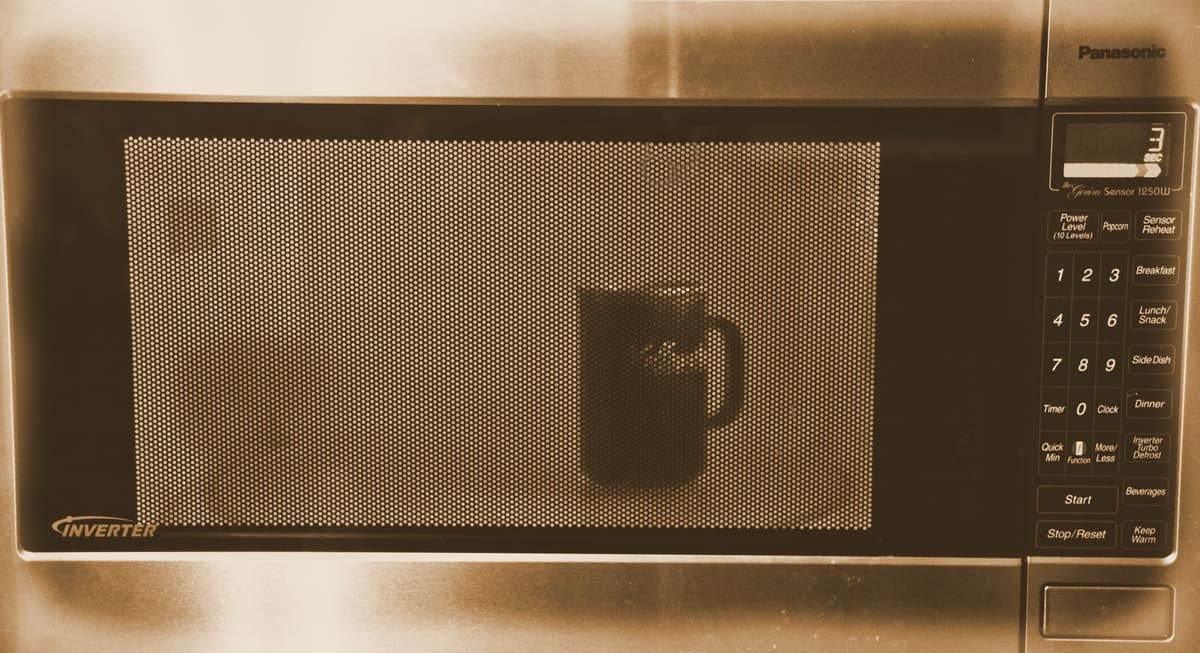
Why Microwaving Cold Coffee Makes Coffee-Lovers Scream

You got distracted earlier this morning and left your precious mug of coffee to sit out for a few hours — now it's cold, but you'd like to reheat it. Is microwaving the way to go? Ask around, and the answer is usually a resounding "no." But why?
The Importance of Fresh Coffee
When we are talking about reheating a cup of coffee in the microwave, the first concern is the level of freshness, which is going to affect taste. If your coffee has been sitting out and cooled down, it isn't fresh anymore; and while you might get more out of a good-quality cup of coffee as it cools down (on the flip side, really bad coffee can taste better when it's really hot), eventually you are going to get to a point where'll need to just brew a fresh batch. Just like drinking coffee that has been sitting on the warming platter all day, warming up a cup of coffee in the microwave simply isn't going to be as fresh as making a new cup.
Turning to Science
What about the science of microwaving your coffee? Does anything actually happen, or is it all a perceived change?
Coffee is all about science — in fact, the drink has over 1,000 aroma compounds — especially when we talk about coffee cooling down and then heating it back up. Karen Yates from Bean Thinking, a blog devoted to the science in your cup, helped me wade through some of the scientific research out there.
How a coffee's chemistry changes as it cools down all depends on "how you store the coffee and how long you wait for it to cool/leave the coffee before you microwave it," says Yates. However, she points out that "several studies note the intensity of the 'roasty-sulfury' odor (which is a pleasant aroma associated with coffee) decreases rapidly after brewing the coffee." That's why you love that initial smell when you first brew your cup of coffee, but it wears off as you drink it.
A cup of coffee that sits out for an extended period of time is also going to taste more sour, because the acidity increases, although Yates notes that "how rapid this increase in acidity is depends on how the coffee was stored after brewing."
Consider Your Reasons for Drinking Coffee
There was also an interesting study done earlier this year on how people felt about drinking coffee, based on whether they were drinking coffee because they really loved the process of drinking coffee, or whether they saw it as just a way to get caffeine. The study concluded that "participants drinking coffee beverages for sensory enjoyment appreciate the entire process, not only the drinking moment, and address more importance to the sensory experience. But participants drinking coffee beverages for stimulation seem to consider the experience as functional (i.e., driven by caffeine absorption to obtain the expected mental energy boost, with cup drinking as the key moment)."
In other words, if you are drinking coffee because you love the process of drinking coffee, then the sensory aspect is more important to you — so it's worth it to brew a fresh cup. But if you are someone who is just trying to down a cup for the caffeine, microwave away! You'll get your jolt without having to bother with brewing.
In the End, It's Probably Worth It to Make a Fresh Cup
In my opinion, it's better to just go ahead and brew a new cup of coffee. With a pour-over system, in just a little more time than it would take you to pop your cup in the microwave, you could have a freshly brewed cup. In doing so, you'll guarantee a higher level of freshness and taste, which we all deserve during the mid-afternoon slump!

